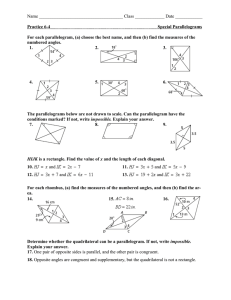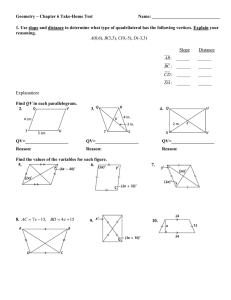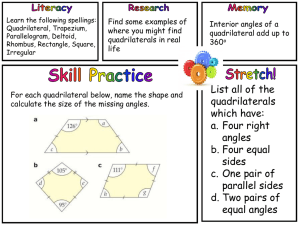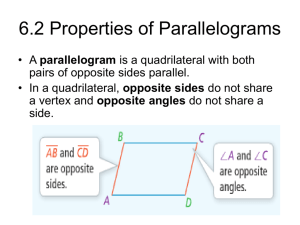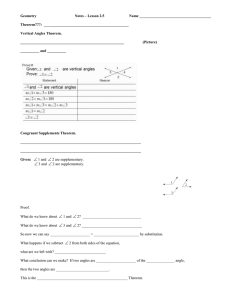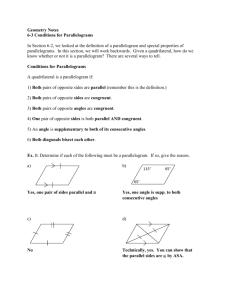6.2/6.3: Properties of Parallelograms MCE Three Blind Mice
advertisement
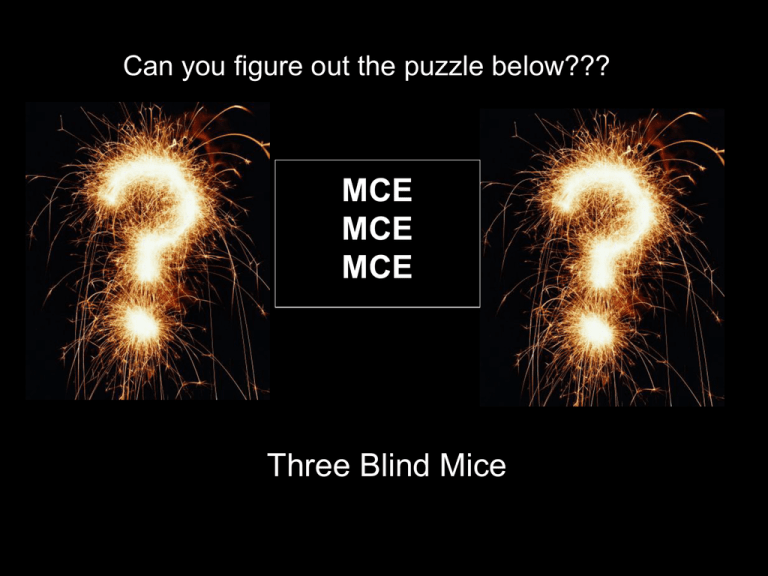
6.2/6.3: Properties of Parallelograms Can you figure out the puzzle below??? MCE MCE MCE Three Blind Mice Sides and Angles Theorem 6.1: Opposite sides of a parallelogram are congruent. Statements Reasons 1. 2. AB || DC , BC || AD 3. 1 4, 3 2 4. AC AC 5. ABC CDA 1. 2. 6. 6. 3. 4. 5. Sides and Angles Consecutive angles: angles of a polygon that share a side R and S are consecutive angles of a parallelogram. They are . Theorem 6.2: Opposite angles of a parallelogram are congruent. Sides and Angles B Solve for x and y. C ( 2 x 10)( y 20) ( 2 x 10) A D Diagonals and Transversals Theorem 6.3: The diagonals of a parallelogram bisect each other. Solve a system of linear equations to find the values of a and b in WXYZ . Theorem Theorem 6.5: If both pairs of opposite sides of a quadrilateral are congruent, then the quadrilateral is a parallelogram. 1 2 Draw diagonal XZ . 3 Statements Reasons 1. 1. 2. XZ XZ 3. 4. 5. WX || ZY ,WZ || XY 6. 2. 3. SSS Post. 4. CPCTC 5. 6. 4 Theorem Theorem 6.6: If both pairs of opposite angles of a quadrilateral are congruent, then the quadrilateral is a parallelogram. Theorem Theorem 6.7: If the diagonals of a quadrilateral bisect each other, then the quadrilateral is a parallelogram. Theorem Theorem 6.8: If one pair of opposite sides of a quadrilateral is both congruent and parallel, then the quadrilateral is a parallelogram. Applications Find the values of the variables for which the quadrilaterals must be parallelograms. Applications Determine whether you can prove that the quadrilaterals are parallelograms. Justify your answer. 6.2/6.3: Properties of Parallelograms Can you figure out the puzzle below??? pu37-39, 46, 47, 50 HW: p.315 #1-17eiln odd, p.324 #1-9 odd, 12-16 even Line up in alphabetical order
